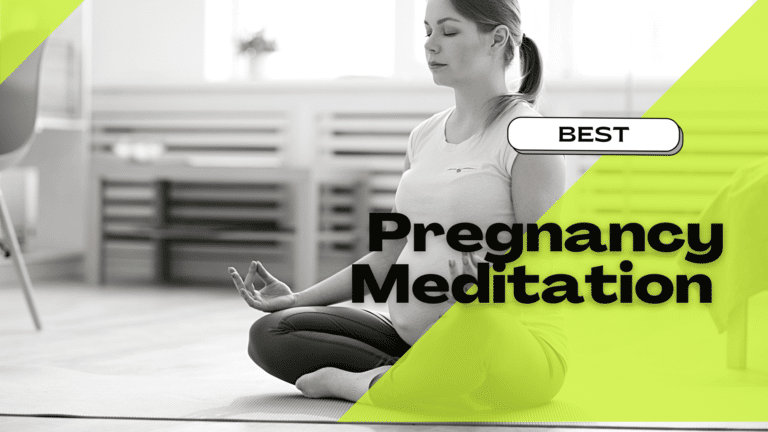Todd Kennedy Rochester, New York, Shares The Benefits of Mindfulness Meditation to Manage Mental Health Issues
Published on June 14, 2023 – Last Updated on October 2, 2023
Mindfulness meditation has become widespread as people begin to understand its positive benefits in managing mental health issues such as stress, anxiety, and depression. Mindfulness is a form of meditation that focuses on the present moment while calmly acknowledging and accepting your thoughts, feelings, and emotions without judgment or attachment. The goal of mindfulness is to cultivate more significant levels of focus, clarity, and insight into our physical sensations and emotional state.
By taking some time each day for mindful contemplation, we can gain better control over how we think about ourselves and manage the complex emotions associated with mental health challenges. Today, Todd Kennedy, Rochester, New York expert, will take a closer look at why mindfulness meditation is so effective in helping us to cope with mental health issues by providing an overview of its primary benefits.
What is Mindfulness Meditation and its Benefits
Mindfulness meditation is a practice that involves bringing one’s attention to the present moment, allowing thoughts and sensations to pass without judgment. Many people have found this practice transformative, helping with anxiety, stress, and depression. Mindfulness meditation has also shown physical benefits, such as lowering blood pressure and increasing immune function. It encourages a sense of self-awareness and compassion towards oneself and others, leading to greater satisfaction in life. Regularly practicing mindfulness meditation can develop a stronger emotional and mental resilience, positively impacting all aspects of their life.
How to Practice Mindfulness Meditation
Mindfulness meditation is a powerful technique that can help you calm your mind and find peace amidst the chaos of everyday life. To start practicing mindfulness meditation, find a quiet and comfortable place to sit or lie down. Focus your attention on your breath, and try to stay present in the moment without letting your thoughts wander. As you practice, you may find that your mind starts to quiet down, and you become more aware of the present moment. Although it may take time and patience to become entirely comfortable with meditation, the benefits of this practice are countless. With time and consistent effort, you can cultivate a more profound sense of awareness, improve your mental clarity, and learn how to manage your stress and anxiety more effectively.
Using Mindfulness Meditation to Manage Stress
Stress can feel like an ever-present force in our lives, affecting everything from productivity to relationships. It’s no secret that too much stress can lead to burnout and many physical and mental health problems. But what if there was a way to tame this overwhelming feeling? Enter mindfulness meditation: a technique used for centuries to cultivate awareness and presence at the moment. By taking just a few minutes each day to practice mindfulness, we can learn to recognize and regulate our stress levels, leading to a happier, healthier life. Whether we’re dealing with a work deadline, family conflict, or simply feeling overwhelmed by the day-to-day, mindfulness meditation offers a powerful tool for managing stress and regaining a sense of calm and balance.
Ways to Incorporate Mindfulness Meditation into Your Life

Incorporating mindfulness meditation into your daily routine may seem daunting initially, but it’s easier than you might think. Rather than carving out a big chunk of time, try starting with just five or ten minutes at a specific time each day — maybe right after waking up or before bed. As you become more comfortable with the practice, you can gradually increase your meditation time. Another effective way to incorporate mindfulness meditation into your life is to focus on your breath throughout the day. Whether you’re waiting in line, washing dishes, or taking a walk, simply drawing your attention to your breath and being present at the moment can help bring a sense of calm and clarity to your mind. With these tips, you’ll be well on your way to cultivating a regular mindfulness meditation practice.
Examples of Mindful Exercises (Body Scan, Breathing Exercise, etc.)
In today’s fast-paced society, taking a break and practicing mindfulness is essential. Mindfulness means being present in the moment and becoming aware of your thoughts, feelings, and environment. Incorporating mindful exercises into your daily routine is a great way to do this. One example is the body scan, which involves lying down and focusing on each part of your body, starting from the toes and working your way up to your head. Breathing exercises are another effective way to be mindful. Simply close your eyes and focus on your breaths, inhaling and exhaling deeply and slowly. Whatever technique you choose, these exercises can help you relax, reduce stress, and improve your overall well-being.
Tips for Starting Your Own Daily Practice of Mindfulness Meditation
Starting a daily mindfulness meditation practice can initially seem daunting, but it is one of the most rewarding habits you can develop. Mindfulness meditation is a practice that focuses on bringing your awareness to the present moment, allowing you to cultivate a sense of peace and calm. To begin, sit quietly and focus on your breath for a few minutes daily. Don’t worry if your mind wanders; simply acknowledge any distracting thoughts and bring your attention back to your breath. Over time, you’ll notice the benefits of regular meditation, such as increased focus and decreased stress levels. Remember, consistency is critical, so try to practice mindfulness meditation every day, even if it’s only for a few minutes.
Conclusion
Todd Kennedy, Rochester, New York expert, says mindfulness meditation is a unique mindfulness tool that offers numerous mental, physical, spiritual, and emotional benefits. Practicing mindfulness meditation can help you reduce stress levels, develop a healthier, closer relationship with yourself, and gain a heightened sense of awareness and clarity in your daily life. It doesn’t matter how experienced or inexperienced you are with meditation—by following the tips outlined above to start your practice; there’s no doubt that incorporating mindfulness meditation into your routine will be one of the most enriching things you will ever do for yourself. Whether it’s simply sitting in silence for five minutes to gain perspective or setting aside an hour a day to deepen your practice, don’t underestimate the power that can come from taking time out of our busy lives to focus on ourselves more deeply. There’s no denying that the rewards can be innumerable once one begins practicing mindfulness meditation regularly.




